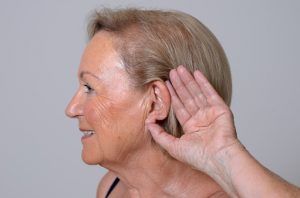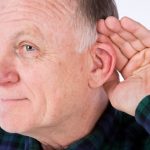 It’s very rare that one condition affects only one part of the body. The body is made up of many connective systems and so when one system goes, others suffer. Case in point, hearing loss doesn’t solely affect your ability to hear. It can affect your entire body.
It’s very rare that one condition affects only one part of the body. The body is made up of many connective systems and so when one system goes, others suffer. Case in point, hearing loss doesn’t solely affect your ability to hear. It can affect your entire body.
Hearing loss, as of yet, cannot be reversed so it’s important to take the necessary steps to maintain proper hearing. And don’t think it’s too late – no matter your age you can still take appropriate measures to protect your hearing and ensure you don’t develop any of these other effects.
Effects of hearing loss on health
Advertisement
 Hearing loss greatly impacts brain health in a variety of ways. For starters, as one study found, hearing loss may reduce cognitive function. Researchers from John Hopkins University tested the cognitive function of 235 older men and women over the span of 20 years. Their results found that among those who experienced hearing loss they also experienced higher rates of cognitive decline including a reduction in memory and mental abilities.
Hearing loss greatly impacts brain health in a variety of ways. For starters, as one study found, hearing loss may reduce cognitive function. Researchers from John Hopkins University tested the cognitive function of 235 older men and women over the span of 20 years. Their results found that among those who experienced hearing loss they also experienced higher rates of cognitive decline including a reduction in memory and mental abilities.
Additional research in JAMA Otalaryngol Head and Neck Surgery found that among elderly patients who were deaf, the use of cochlear implants – a hearing device implanted in the ear – improved cognitive function. Researchers also found an improvement of memory and mental flexibility after a one year follow-up with participants who used the implant.
Both studies reveal the importance of hearing as it affects cognitive ability, but hearing loss can also affect individual psychologically as well.
According to the Better Hearing Institute untreated hearing loss can lead to the following psychological and mood behaviors:
- Irritability
- Anger
- Anxiety
- Fatigue
- Tension
- Depression
- Loneliness
- Stress
- Reduced alertness.
Your mental health and cognitive function can be impaired by hearing loss.
The psychological effects of hearing loss can worsen your health. For example, stress and depression can weaken the immune system, cause pain and impact your heart.
Although hearing loss is often associated with aging, it can happen to anyone at any time. The goal then is to prevent it as much as possible.
How to prevent hearing loss
 Here are a few tips to prevent or slow down hearing.
Here are a few tips to prevent or slow down hearing.
- Wear protective ear gear, especially around loud noises
- Keep sounds from devices – TV, music player etc. – to a minimum, especially if using headphones
- Get your hearing checked regularly
- Avoid injuries to the head
- Don’t stick objects or cotton swabs into your ear
- Avoid long hours in loud noise environments
- Ensure you are cleaning your ears effectively.
By following these tips you can work to hold on to your hearing, and cognitive function, for many more years to come.
Related Reading:
Researchers on step closer to reversing hearing loss
Washington University School of Medicine may be a step closer to reversing hearing loss. The study was conducted on mice where researchers identified two signaling molecules which are necessary for proper development of the cochlea – a part in the inner ear that translates sound waves into nerve impulses for the brain. Continue reading…
Advertisement
Is this bone disease affecting your hearing?
Within America alone, nearly two-million men have osteoporosis and another eight to 13 million have low bone density. Although osteoporosis mainly affects the bones, a new link has emerged between osteoporosis and hearing loss. Continue reading…
Sources:
http://www.everydayhealth.com/news/surprising-ways-your-hearing-affects-your-health/?xid=tw_everydayhealth_sf
http://www.ncbi.nlm.nih.gov/pubmed/25763680
http://aje.oxfordjournals.org/content/181/9/680.abstract
http://www.betterhearing.org/hearingpedia/consequences-hearing-loss
http://www.betterhearing.org/hearingpedia/hearing-loss-prevention

